BMW 7 Series vs Mercedes EQE - Differences and prices compared
Compare performance (571 HP vs 625 HP), boot space and price (101500 £ vs 57600 £ ) at a glance. Find out which car is the better choice for you – BMW 7 Series or Mercedes EQE?
Costs and Efficiency:
Price and efficiency are often the first things buyers look at. Here it becomes clear which model has the long-term edge – whether at the pump, the plug, or in purchase price.
Mercedes EQE has a clearly advantage in terms of price – it starts at 57600 £ , while the BMW 7 Series costs 101500 £ . That’s a price difference of around 43897 £.
As for electric range, the Mercedes EQE performs clearly better – achieving up to 691 km, about 611 km more than the BMW 7 Series.
Engine and Performance:
Power, torque and acceleration are the classic benchmarks for car enthusiasts – and here, some clear differences start to show.
When it comes to engine power, the Mercedes EQE has a barely noticeable edge – offering 625 HP compared to 571 HP. That’s roughly 54 HP more horsepower.
In acceleration from 0 to 100 km/h, the Mercedes EQE is evident quicker – completing the sprint in 3.50 s, while the BMW 7 Series takes 4.30 s. That’s about 0.80 s faster.
In terms of top speed, the BMW 7 Series performs somewhat better – reaching 250 km/h, while the Mercedes EQE tops out at 220 km/h. The difference is around 30 km/h.
There’s also a difference in torque: Mercedes EQE pulls somewhat stronger with 950 Nm compared to 800 Nm. That’s about 150 Nm difference.
Space and Everyday Use:
Cabin size, boot volume and payload all play a role in everyday practicality. Here, comfort and flexibility make the difference.
Both vehicles offer seating for 5 people.
In curb weight, BMW 7 Series is barely noticeable lighter – 2255 kg compared to 2375 kg. The difference is around 120 kg.
In terms of boot space, the BMW 7 Series offers noticeable more room – 540 L compared to 430 L. That’s a difference of about 110 L.
When it comes to payload, BMW 7 Series minimal takes the win – 665 kg compared to 600 kg. That’s a difference of about 65 kg.
Who comes out on top?
Overall, the Mercedes EQE shows itself to be is largely superior and secures the title of DriveDuel Champion.
It convinces with the more balanced overall package and proves to be the more versatile choice for everyday use.
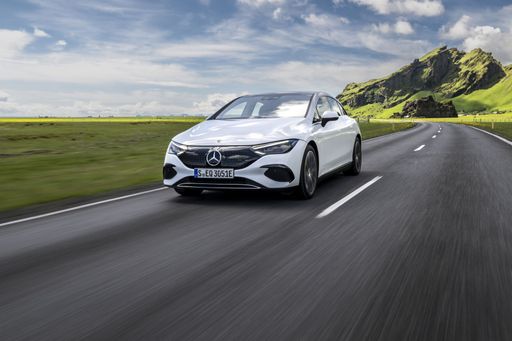
Mercedes EQE
Costs and Consumption
View detailed analysis
Engine and Performance
View detailed analysis
Dimensions and Body
View detailed analysis
BMW 7 Series
The BMW 7 Series is a flagship that balances whisper-quiet luxury with a driver's focus, wrapping advanced tech and plush comfort in a sleek, authoritative presence. It’s the kind of car that navigates city traffic and open roads with equal poise, offering a grown-up alternative for buyers who demand refinement without losing a little driving fun.
details
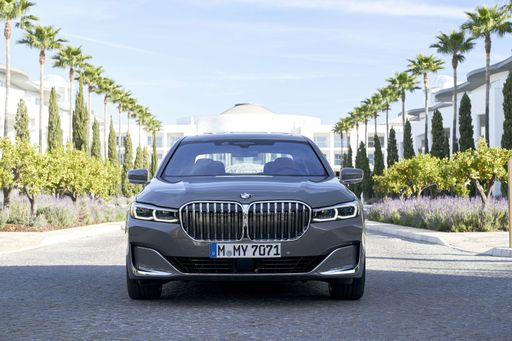

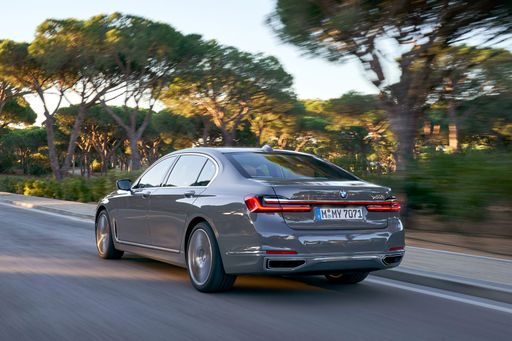
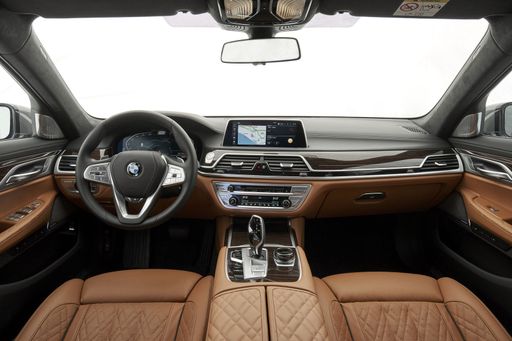

Mercedes EQE
The Mercedes EQE glides like a silk-wrapped saloon from the future, pairing whisper-quiet refinement with a high-tech cabin that feels both modern and indulgent. For buyers who want electric luxury without shouting about it, the EQE is composed, comfortably confident, and just smug enough to feel special.
details
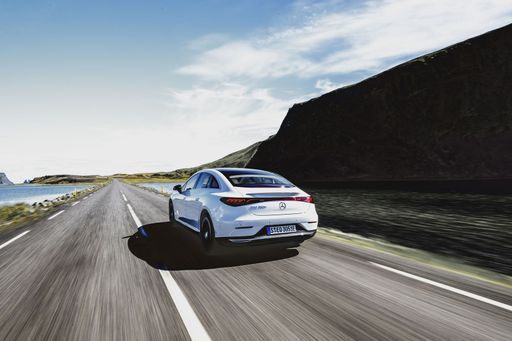
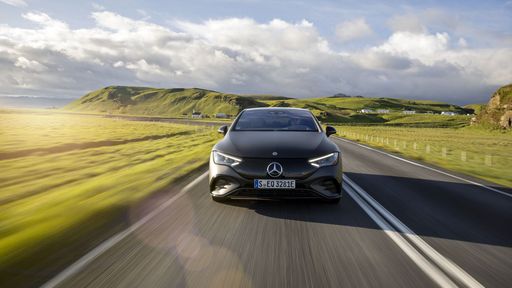
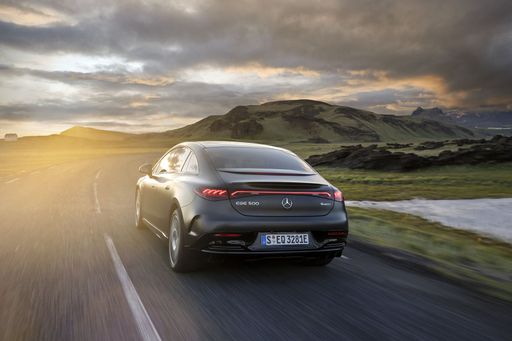
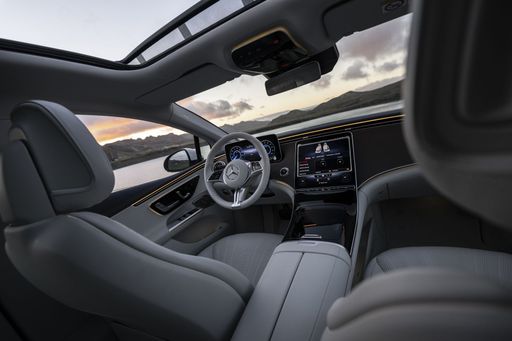
Costs and Consumption |
|
|---|---|
|
Price
101500 - 127500 £
|
Price
57600 - 94900 £
|
|
Consumption L/100km
3.3 - 6.1 L
|
Consumption L/100km
-
|
|
Consumption kWh/100km
-
|
Consumption kWh/100km
15.8 - 20.7 kWh
|
|
Electric Range
80 km
|
Electric Range
502 - 691 km
|
|
Battery Capacity
17.60 kWh
|
Battery Capacity
90.5 - 96 kWh
|
|
co2
74 - 160 g/km
|
co2
0 g/km
|
|
Fuel tank capacity
65 - 74 L
|
Fuel tank capacity
-
|
Dimensions and Body |
|
|---|---|
|
Body Type
Sedan
|
Body Type
Sedan
|
|
Seats
5
|
Seats
5
|
|
Doors
4
|
Doors
4
|
|
Curb weight
2255 - 2525 kg
|
Curb weight
2375 - 2540 kg
|
|
Trunk capacity
525 - 540 L
|
Trunk capacity
430 L
|
|
Length
5391 mm
|
Length
4946 - 4964 mm
|
|
Width
1950 mm
|
Width
1961 mm
|
|
Height
1544 mm
|
Height
1492 - 1510 mm
|
|
Max trunk capacity
-
|
Max trunk capacity
-
|
|
Payload
605 - 665 kg
|
Payload
545 - 600 kg
|
Engine and Performance |
|
|---|---|
|
Engine Type
Diesel MHEV, Plugin Hybrid
|
Engine Type
Electric
|
|
Transmission
Automatic
|
Transmission
Automatic
|
|
Transmission Detail
Automatic Gearbox
|
Transmission Detail
Reduction Gearbox
|
|
Drive Type
All-Wheel Drive
|
Drive Type
All-Wheel Drive, Rear-Wheel Drive
|
|
Power HP
300 - 571 HP
|
Power HP
265 - 625 HP
|
|
Acceleration 0-100km/h
4.3 - 5.8 s
|
Acceleration 0-100km/h
3.5 - 6.9 s
|
|
Max Speed
250 km/h
|
Max Speed
210 - 220 km/h
|
|
Torque
670 - 800 Nm
|
Torque
550 - 950 Nm
|
|
Number of Cylinders
6
|
Number of Cylinders
-
|
|
Power kW
220 - 420 kW
|
Power kW
195 - 460 kW
|
|
Engine capacity
2993 - 2998 cm3
|
Engine capacity
-
|
General |
|
|---|---|
|
Model Year
2024 - 2025
|
Model Year
2024 - 2025
|
|
CO2 Efficiency Class
F, B
|
CO2 Efficiency Class
A
|
|
Brand
BMW
|
Brand
Mercedes-Benz
|
Is the BMW 7 Series offered with different drivetrains?
The BMW 7 Series is available as All-Wheel Drive.




